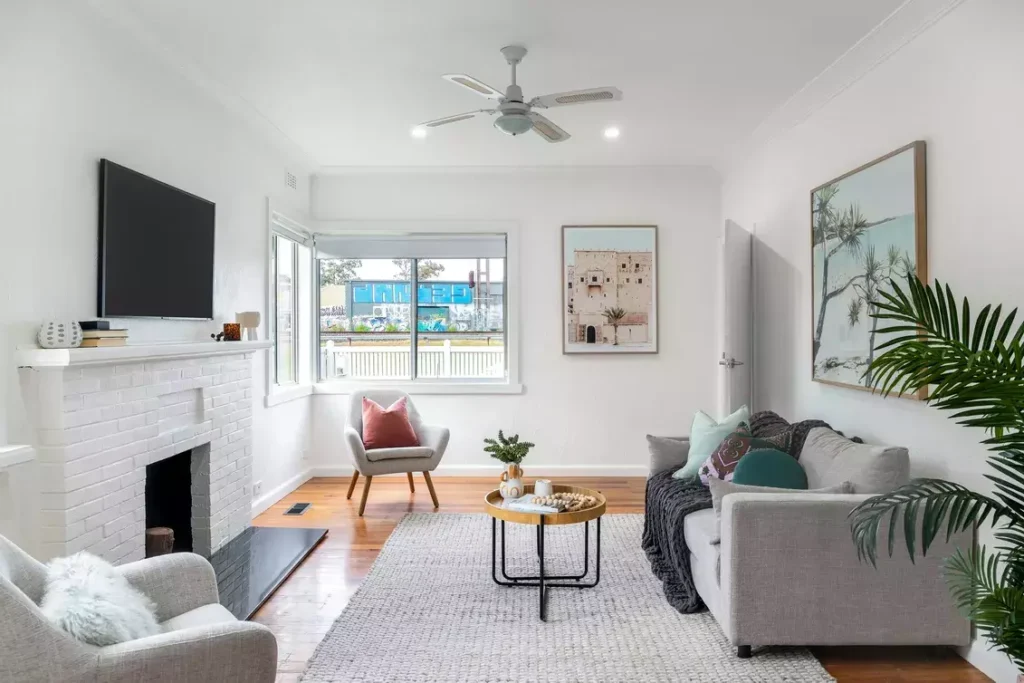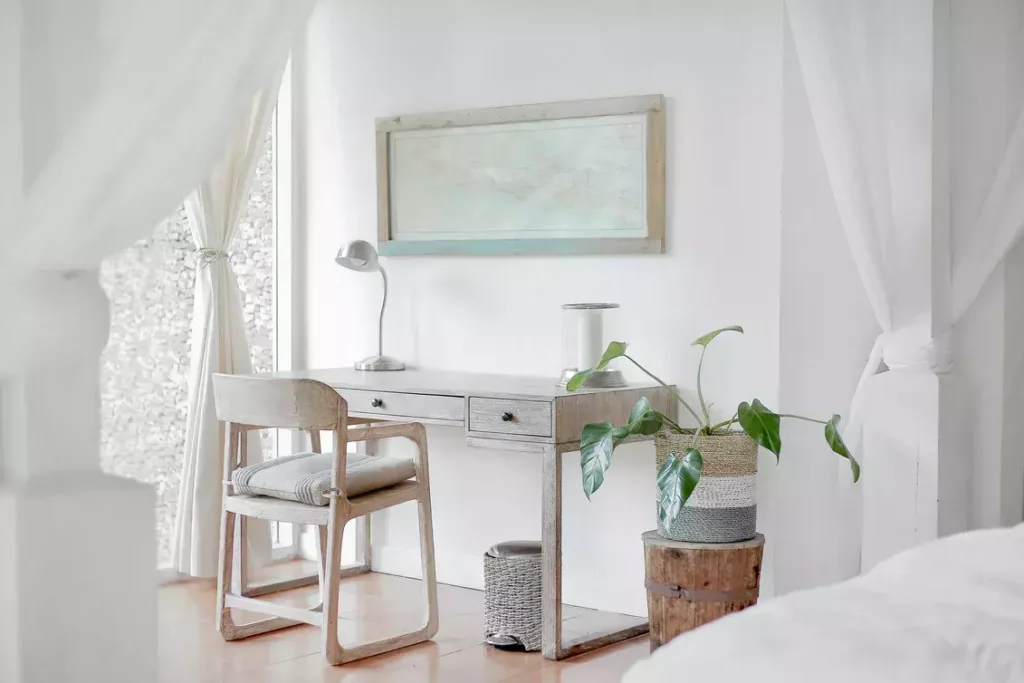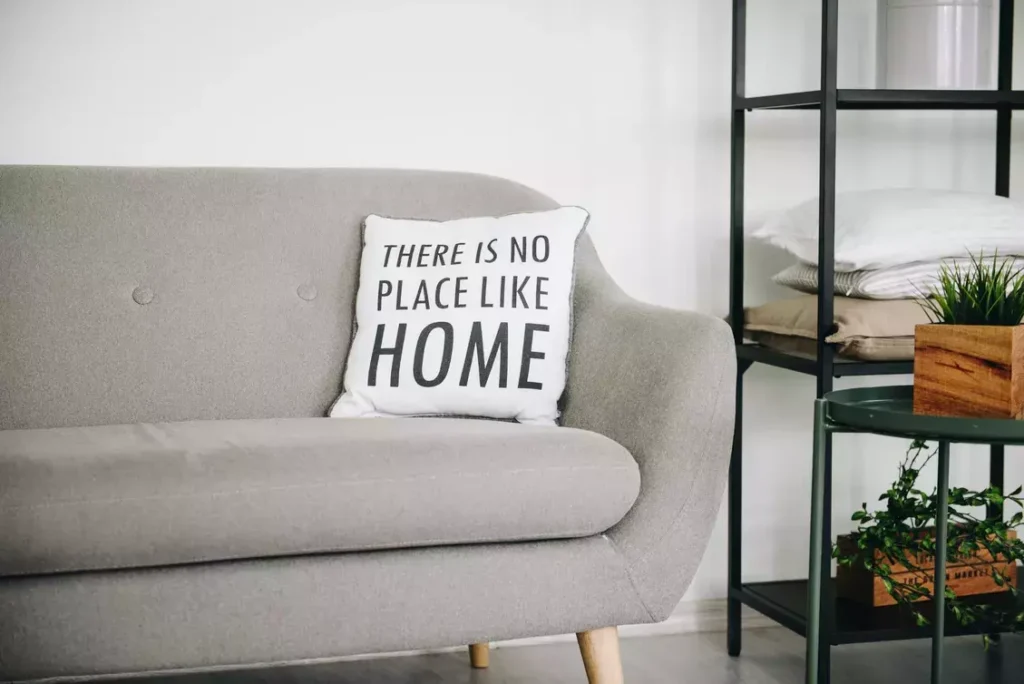Your home is more than just a physical space where you live—it’s an extension of who you are, embodying the essence of your personality, values, and lifestyle. By thoughtfully designing a Home That Reflects Your Personality, you can create an environment that feels authentic, welcoming, and comforting. Through intentional design, decor choices, and mindful living practices, you can transform your space into a true reflection of your unique character and principles. This article will guide you in creating a home that mirrors your identity, offering tips to make every corner of your space resonate with who you are.
The Importance of Personalization in Home Design
Personalization is essential for turning a house into a true home. The spaces you inhabit should evoke emotions that are meaningful to you, whether it’s joy, peace, or inspiration. When your home reflects your personality and values, it becomes a sanctuary – a place where you feel most yourself. Personalizing your home is also an opportunity to express your creativity and celebrate what makes you unique.
Why Your Home Should Reflect Your Values
Beyond aesthetics, the design and layout of your home can reinforce what’s important to you. Whether it’s sustainability, comfort, creativity, or tradition, your values should guide your design choices. If you prioritize eco-friendliness, for example, your home might incorporate natural materials, energy-efficient appliances, and upcycled furniture. If family is central to your life, your home might have cozy communal spaces that encourage togetherness.
The environment you live in has a direct impact on your mental and emotional well-being. Living in a space that embodies your values can inspire you, make you feel more aligned with your personal goals, and offer a sense of purpose and comfort.
Step-by-Step Guide to Creating a Home That Reflects You
1. Define Your Personal Style and Values
The first step to creating a home that reflects your personality is to get a clear sense of your style and values. Consider the following questions:
- What inspires you? Think about the places, colors, textures, and experiences that bring you joy. Are you drawn to modern minimalist design, rustic charm, or perhaps bohemian flair?
- What are your core values? These could include sustainability, family, relaxation, health, or spirituality. How can you incorporate these into your living space?
- What makes you feel at home? Is it comfort and coziness, or do you prefer a more structured and organized environment?
By answering these questions, you’ll have a clearer idea of what kind of home environment will best suit your lifestyle and personality.
2. Declutter and Organize with Purpose To Create A Home That Reflects Your Personality
A home that reflects your personality and values begins with intentionality. Decluttering is a great first step to ensure that everything in your home has a purpose and speaks to who you are. The items you choose to keep should either serve a practical purpose or hold personal significance.
Start by evaluating each room and eliminating unnecessary items that don’t align with your lifestyle. Keep only those items that are meaningful or useful. Decluttering also helps create space for new ideas and experiences, allowing your home to evolve with you over time.
Organization Tips:
- Use multi-functional furniture to save space and reduce clutter.
- Create designated spaces for frequently used items, which will help maintain order.
- Display meaningful pieces that reflect your interests, such as art, books, or travel souvenirs.
3. Infuse Your Personality into Every Room

Each room in your home serves a different function and provides an opportunity to reflect a unique aspect of your personality. Here are ways to infuse personal touches into different spaces:
Living Room: Your Social Identity
The living room is often the heart of the home, a place where you entertain guests or relax with family. This space should reflect your social personality – whether you’re a vibrant host or a quiet, introspective soul.
- Choose artwork or decor that showcases your passions or hobbies. For instance, if you’re passionate about photography, consider displaying framed prints of your own work.
- Choose a color palette that aligns with your personal energy. Bright, bold colors reflect enthusiasm and vibrancy, while muted tones convey calmness and tranquility.
- Incorporate personal items like family heirlooms, handmade crafts, or travel mementos that hold sentimental value.
Kitchen: Reflect Your Values Through Functionality
The kitchen is a space that represents nourishment and often reflects your values around health and family. It’s also a space that benefits from thoughtful design that supports your daily routines.
- If sustainability is important to you, consider eco-friendly choices like energy-efficient appliances, reusable containers, and locally sourced materials for kitchen furnishings.
- Reflect your culinary personality through functional design – open shelving to display your favorite dishes or glass jars filled with organic ingredients.
- If family is central to your values, create a cozy dining nook that encourages conversation and togetherness during meals.
Bedroom: A Reflection of Self-Care
Your bedroom should be your sanctuary – a place that reflects your personality while promoting relaxation and self-care. This space can embody your need for rest, reflection, and rejuvenation.
- Choose soft, calming colors and natural textures that soothe the senses. Soft lighting, plush rugs, and comfortable bedding create a tranquil atmosphere.
- Personalize your space with items that promote well-being, such as aromatherapy diffusers, calming artwork, or cozy reading corners.
- If you’re an introvert who values privacy, consider adding blackout curtains and noise-reducing elements to create an environment of peace and quiet.
Home Office: Showcasing Productivity and Creativity
Whether you work from home or use your office space for personal projects, your home office should reflect your creativity and drive for productivity.
- Decorate your office with inspiring quotes, photos, or art pieces that motivate you to stay focused.
- Invest in ergonomic furniture that enhances comfort, supporting long hours of work or study.
- If creativity is central to your values, set up a creative corner with supplies and tools that spark inspiration – whether it’s a bulletin board for ideas or a display of personal projects.
Bathroom: Reflect Simplicity and Tranquility

A bathroom may seem like a purely functional space, but it can also reflect your values of cleanliness, simplicity, or self-care. Design a spa-like ambiance that encourages relaxation and promotes a sense of well-being.
Opt for natural materials like stone, wood, or bamboo, which create a serene and organic feel.
Minimalist design can reflect your desire for simplicity and order. Keep countertops clear and invest in smart storage solutions to reduce clutter.
Add personal touches with luxurious bath products or plants to enhance the atmosphere of tranquility.
4. Incorporate Meaningful Decor To Create A Home That Reflects Your Personality
Decor is one of the most effective ways to inject personality into your home. When choosing decor, prioritize items that hold personal significance or reflect your interests and passions. Here are some ideas to consider:
- Art and Photography: Use artwork that resonates with you emotionally. This could be paintings, photographs, or prints from artists you admire. You could also display personal photos from important moments in your life, such as travel or family gatherings.
- Books: If you’re a reader, your book collection can serve as both decor and a reflection of your intellectual pursuits. Display your favorite books on open shelves, or create a cozy reading nook with a chair and lamp.
- Handmade Items: Incorporating handcrafted items like pottery, textiles, or sculptures from local artisans or places you’ve visited adds a unique touch. These items often tell a story and reflect cultural values.
- Plants: Bringing nature indoors with plants not only enhances the aesthetic but can also reflect your love for nature and your values around health and sustainability.
5. Use Color to Convey Emotion and Character
Color plays a crucial role in setting the tone for each room and conveying aspects of your personality. When selecting a color palette, consider how different colors make you feel and what they represent:
- Warm colors like red, orange, and yellow can evoke energy, passion, and creativity.
- Cool colors like blue, green, and purple promote calm, relaxation, and balance.
- Neutral colors like beige, gray, and white offer a sense of simplicity and sophistication.
- Choose colors that resonate with your emotional needs for each space. For example, a soothing palette in the bedroom may help you unwind, while a vibrant color scheme in the living room can energize and uplift the space.
6. Incorporate Sustainability and Ethical Choices To Create A Home That Reflects Your Personality

If environmental consciousness is one of your core values, consider making eco-friendly and ethical choices in your home design. Sustainable materials, energy-efficient technologies, and mindful consumption practices can turn your home into a reflection of your commitment to the planet. For more ideas on integrating technology into your home for added security and efficiency, check out this guide: Protecting Your Home with Technology.
- Select sustainable furniture crafted from reclaimed wood or recycled materials.
- Choose energy-efficient appliances to reduce your carbon footprint and lower utility bills.
- Use eco-friendly paints, textiles, and cleaning products that are free from harmful chemicals.
- Incorporating these elements into your home not only reflects your values but also contributes to a healthier living environment.
7. Embrace Flexibility and Growth To Create A Home That Reflects Your Personality
Your home should evolve with you as your lifestyle, needs, and preferences change over time. What reflects your personality today may shift in the future, and your living space should be adaptable to these changes. Consider flexible design elements that allow you to modify your home without major renovations. For example, modular furniture can be rearranged to suit different purposes, and neutral color schemes allow for easy updates with new accessories or decor.
Conclusion: Designing a Home that Feels Authentically Yours
Creating a home that reflects your personality and values is a deeply personal and rewarding process. It’s not just about aesthetics but about crafting an environment that resonates with who you are and what you believe in. From selecting meaningful decor and choosing a color palette that reflects your emotions to incorporating sustainability and ethical choices, every decision you make contributes to a home that feels authentically yours.

 Dubai Shopping Festival: A Shopper’s Paradise
Dubai Shopping Festival: A Shopper’s Paradise Keeping Kids Happy: Favorite Activities for kids Every Day
Keeping Kids Happy: Favorite Activities for kids Every Day